Philippines, India mark strategic leap in 75 years of ties amid China tensions
Marcos’ ‘landmark’ visit reflects the countries’ growing convergence on defence and economic interests, analysts say
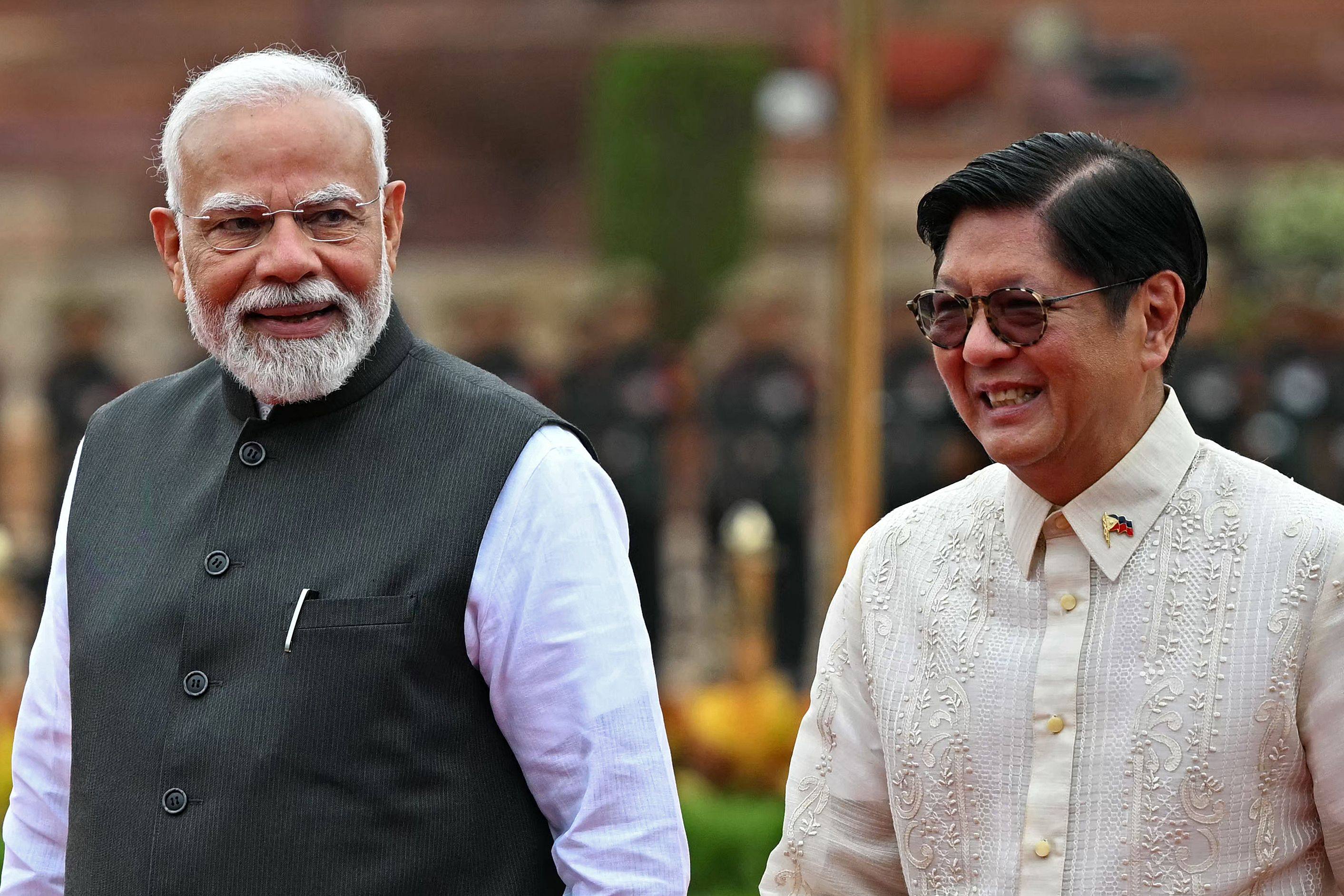
Philippine President Ferdinand Marcos Jnr’s state visit to India has culminated in the elevation of bilateral ties to a strategic partnership, marking a symbolic high point as the two countries celebrate 75 years of diplomatic relations.
Beyond the ceremony, analysts say the trip reflects a growing convergence between Manila and New Delhi on maritime security, defence cooperation and economic resilience – a relationship shaped by shared democratic values, overlapping interests in the Indo-Pacific, and parallel tensions with China.
“As this year marks 75 years of India-Philippines diplomatic relations, President Marcos Jnr’s visit will be seen as a landmark in the bilateral relationship,” Pooja Bhatt, associate professor at the Jindal School of International Affairs, told This Week in Asia.
On Tuesday, Marcos and First Lady Liza Araneta-Marcos were formally welcomed at the presidential residence in Delhi, Rashtrapati Bhavan, following a meeting the previous day between Marcos and the Filipino community in India.
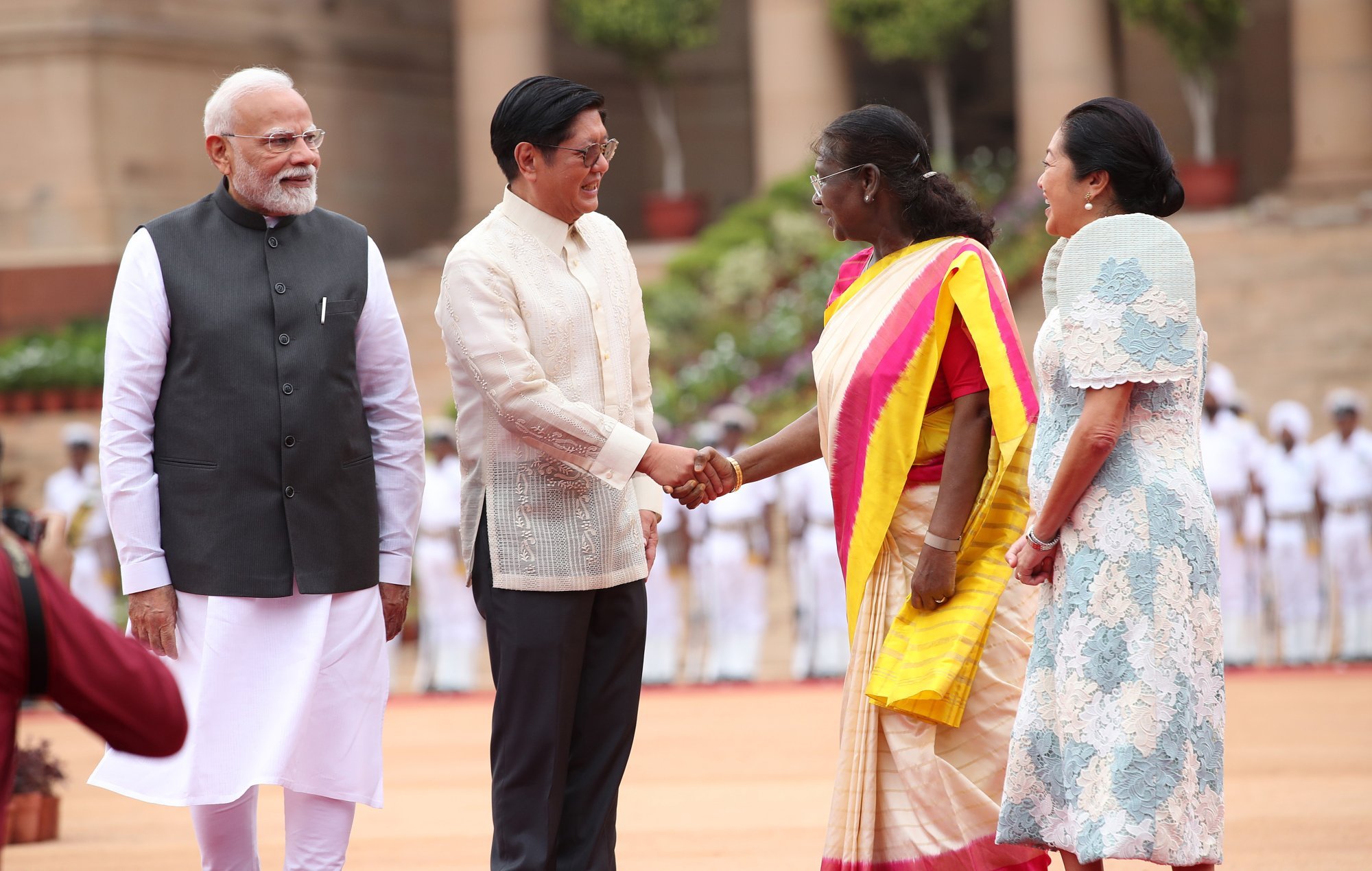
Indian Prime Minister Narendra Modi said the two leaders held wide-ranging talks on Tuesday, discussing “mutual cooperation, regional issues, and international situations in detail”.
Besides Modi, meetings with President Droupadi Murmu and members of the Indian business community were also on Marcos’ agenda, the Philippine Department of Foreign Affairs said.
They were set to ramp up discussions and agreements on trade, defence, and security, as well as “exchange views on regional and international issues of common concern”.
Don McLain Gill, geopolitical analyst and international relations lecturer at De La Salle University in Manila, told This Week in Asia that the Marcos administration had seen “an intensification of institutionalising” bilateral ties, which included signing of a memorandum of understanding between Philippine and Indian coastguards in August 2023, and the countries’ first Track 1 maritime dialogue in December last year .
“These are very important frameworks to be able to fast-track and deepen existing relations, especially in the security realm,” he said.
Marcos on Monday said he had brought along a large delegation, including several Cabinet leaders, to help realise “the vision of a close strategic relationship with India” and boost commitments at government and business levels.
The visit is “expected to yield concrete agreements and renewed commitments that would further enhance the robust partnership between Manila and New Delhi”, according to a release from the Presidential Communications Office.
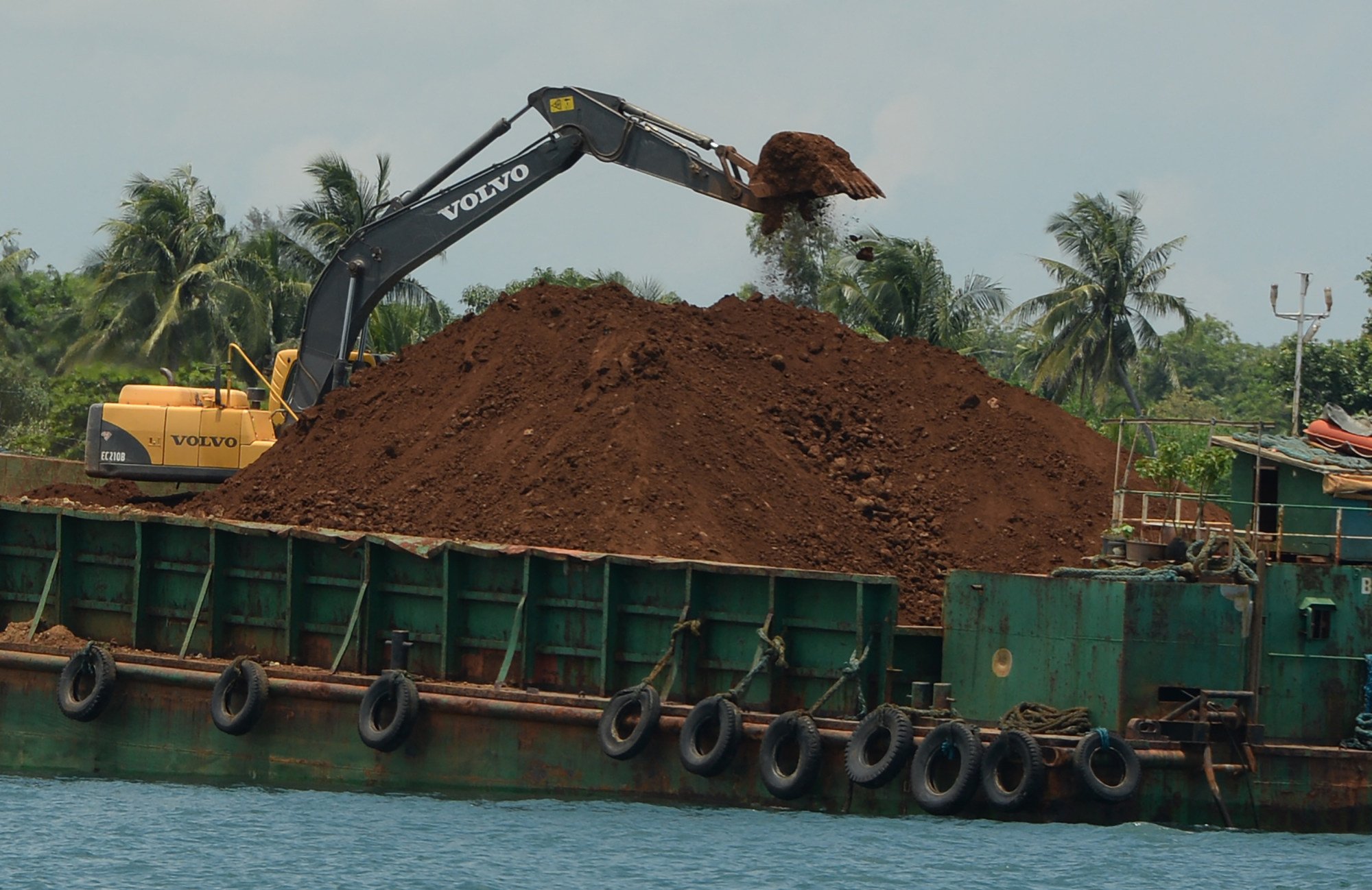
Analysts say India and the Philippines have come a long way in recognising the crucial and practical areas of interest and cooperation.
“As growing regional economies, there is a growing appetite between the two countries to operationalise these areas of interest into a mutually beneficial relationship,” Bhatt said.
Unhandled type: inline-plus-widget {“type”:”inline-plus-widget”}
Matteo Piasentini, an international relations lecturer at the University of the Philippines, highlighted the “burgeoning” ties that were a result of “multi-year engagement and like-mindedness” on several issues.
“The official visit is a testimony of this process,” he told This Week in Asia.
One key area of focus in trade discussions could be on critical minerals, Gill said, noting both countries’ abundant supply of nickel and steel. The Philippines is the second-largest producer of nickel behind Indonesia.
“India is the second-largest producer of steel, and nickel is in fact an important aspect. And I believe that we would be able to create more alternative supply chains for steel and nickel, particularly in line with defence manufacturing, between the Philippines, India and Japan,” he said.
Oorja Tapan, a doctoral candidate at Jawaharlal Nehru University, noted that India sought a “like-minded and responsible partnership” with the Philippines, with P2P relations being the priority, along with maritime infrastructure, maritime domain awareness and interoperability.
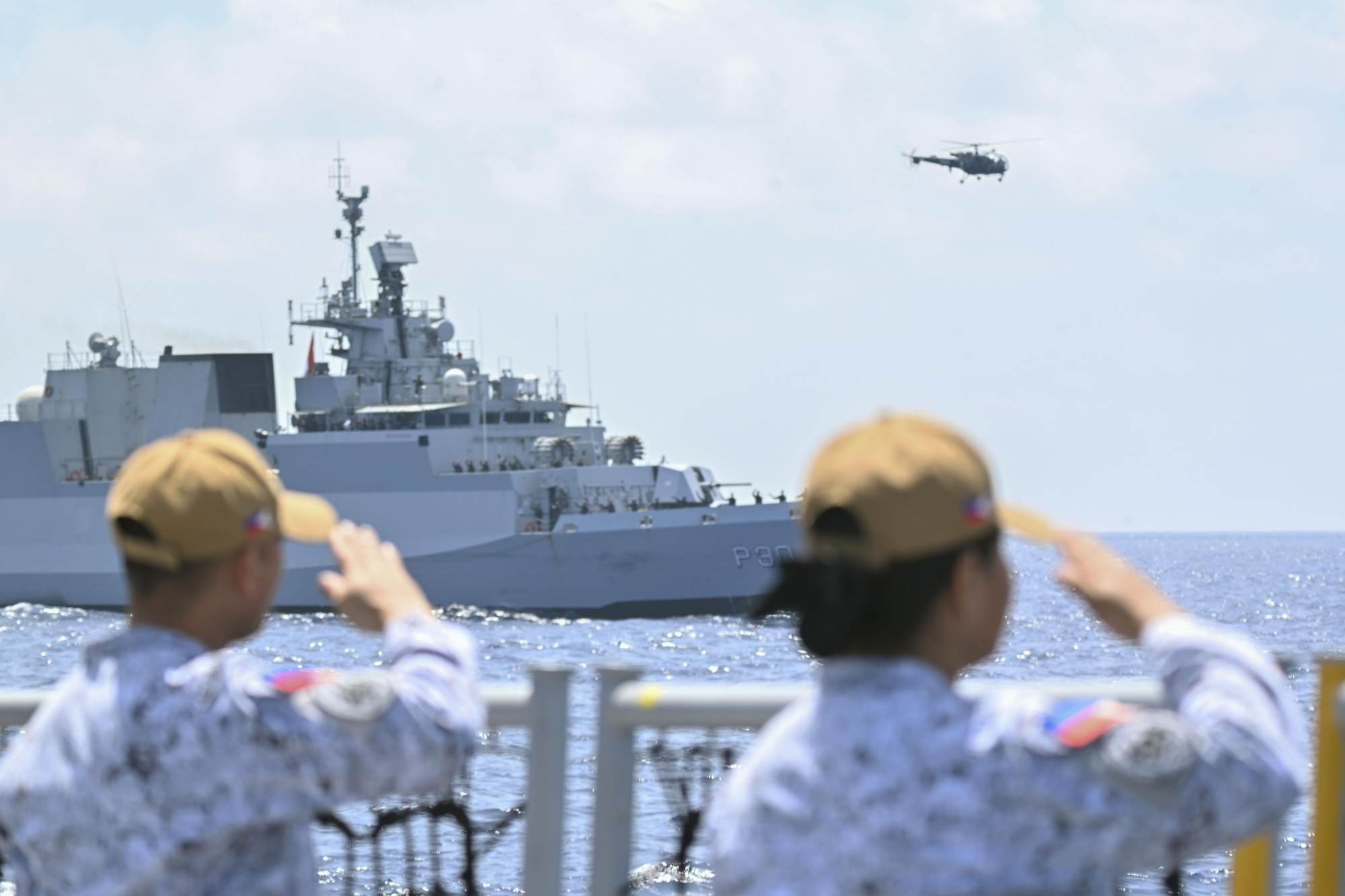
Mutual concerns
Marcos’ visit comes against the backdrop of increasing maritime cooperation between India and the Philippines, as both face a common adversary in China in disputed areas.
For the first time, Indian navy warships patrolled alongside their Philippine counterparts in the West Philippine Sea – Manila’s term for its exclusive economic zone in the South China Sea, which China claims in nearly its entirety – during a two-day sail that began on Sunday after docking in Manila last week.
Meanwhile, India is embroiled in its own conflicts with China, including a disputed land border at Galwan in Ladakh, although Delhi has since made efforts to thaw its relations with Beijing.
“With the Philippines being the oldest constitutional democracy in Asia, and [India being] our continent’s largest democracy, our two countries share several core interests, such as our democratic ideals, our respect for basic freedoms, and the preservation of a rules-based order in the international arena,” Marcos said in his pre-departure speech.
Gill noted that the timing of the visit coinciding with the joint naval exercises was “a clear illustration of the importance attributed by the emerging partnership towards maritime security cooperation”.
India’s supply of BrahMos missiles to the Philippines was “very important, but merely the foot in the door” for bilateral ties to blossom, Gill added.
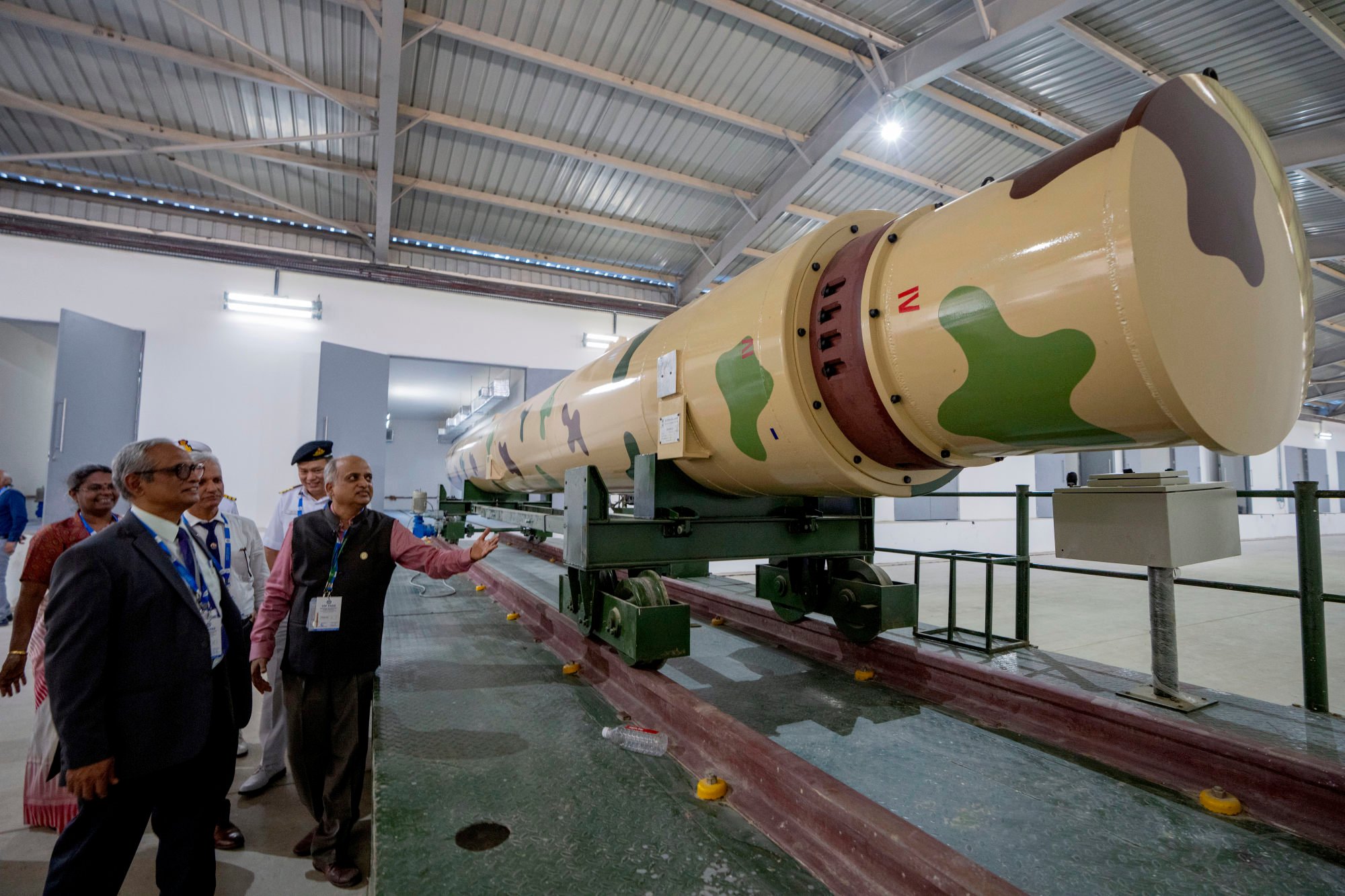
The countries also shared “mutual concerns” such as ensuring freedom of global trade routes, upholding international maritime law and boosting trade and investment while staying committed to regional peace and operation, Bhatt said.
Tapan agreed, adding that “just like the Philippines, India has always advocated against any unilateral maritime claims which hinder territorial integrity and sovereignty”.
The elevation of ties could also signify an opportunity for the South Asian country to widen its influence in the Indo-Pacific region, analysts note.
The joint naval exercises, Tapan said, showed India “clearly aims to expand its outreach” by building more partnerships in the Indo-Pacific region.
The Philippines could be a “key partner” and play a major role in what India called its “Double Fish Hook” strategy – a maritime plan to counter China’s purported “String of Pearls” scheme, or its growing network of ports and naval bases along the Indian Ocean, Tapan added.
“Net security and safeguarding of the main sea lanes will always be a priority for both Delhi and Manila – and these two states should develop greater interoperability in this regard.”